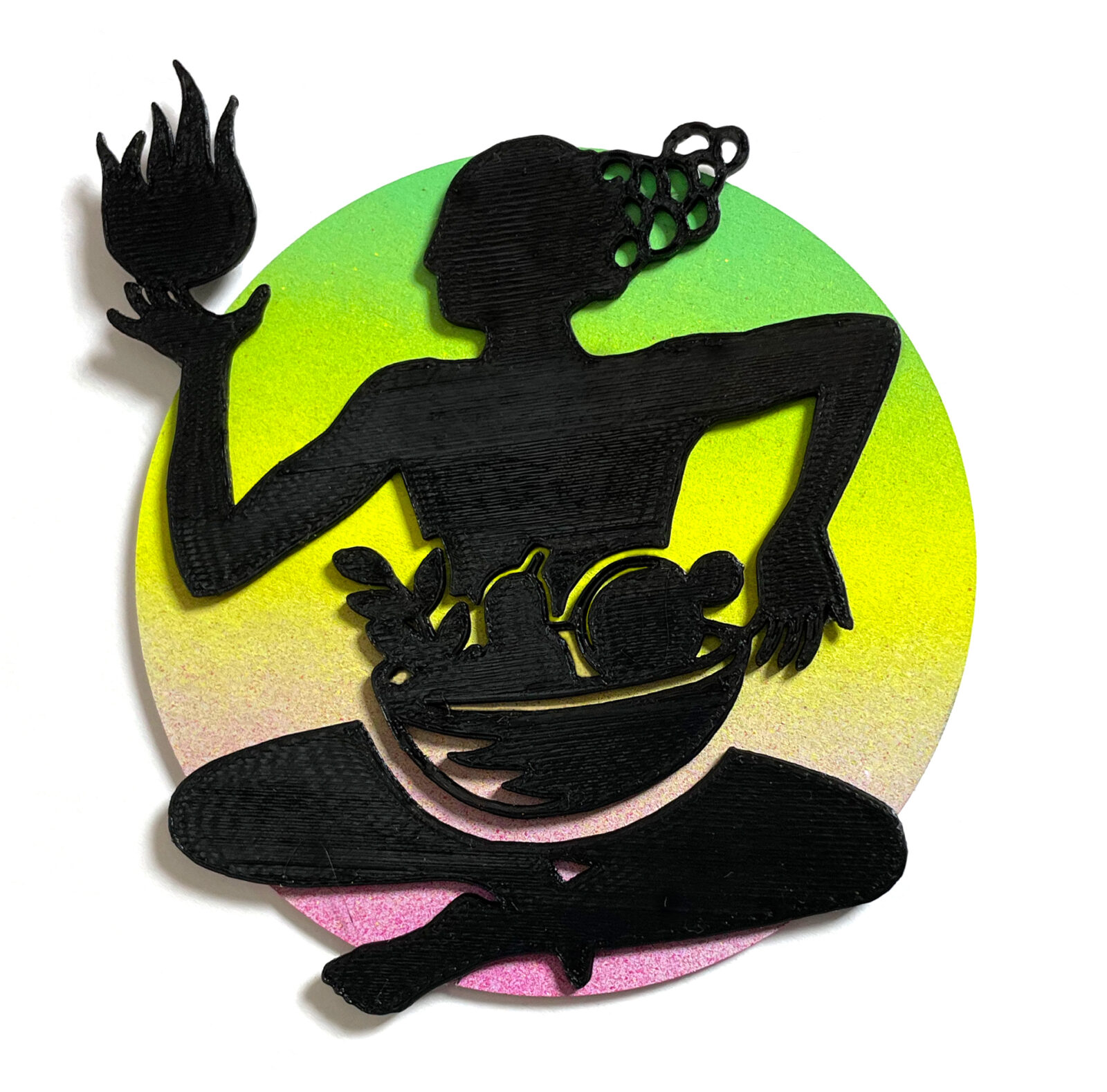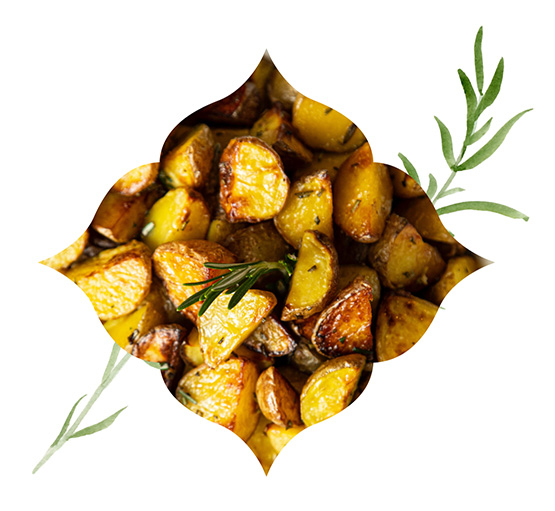
Illustration by Mo Riza

Illustration by Mo Riza
Food is not just matter—the proverbial “fuel for the body”—but human endeavor, our blood, sweat, and tears brought to table in a form that nourishes all our other goings-on.
In cooking and eating, we’re shifting from the world of exploitation—getting what we can—to the world of nurturing, where we receive the bounty and blessings of nature: green grassy asparagus, yellow tart lemon yellow earthy potato, robust purple beet—each ingredient so distinctly, and sincerely, what it is, without any wish to be other or better, freely offering what it has to offer.
Likewise, our hearts are here to freely offer what they have to offer, tasting, cherishing, connecting, enlivening hands and feet to gather ingredients and transform them into food. Our hearts long to do this, so they do not need to be told what to do but simply freed from the dictates of maximizing return. Hearts, no longer constrained by the need to have the results “measure up,” are liberated. Infused with heart energy, our bodies come alive—as does the food!
Thus, we can remind ourselves that stepping into the kitchen can be extraordinarily generous, a plunging-in to giving life to life. Rather than merely being a lot of work, our soul comes forward, and our spirit lifts with the vitality of our heart in action.

In this recipe, the humble potato is roasted to sweet nuttiness. Add garlic cloves or fresh rosemary as you wish. Makes four modest servings.

Edward Espe Brown found his way to Zen practice in 1965. He was the first head cook, or tenzo, at Tassajara Zen Mountain Center, and his best-selling book, The Tassajara Bread Book, was published in 1970. In the years since, Edward helped found Greens Restaurant in San Francisco and wrote several other cookbooks. His latest book, No Recipe: Cooking as a Spiritual Practice, is about finding your own way in the kitchen—and in life.
Get the latest news and stories from the Rubin, plus occasional information on how to support our work.